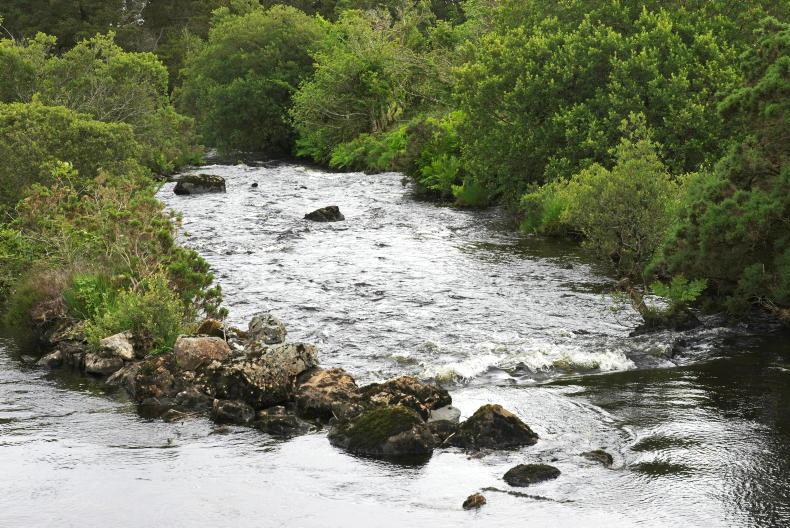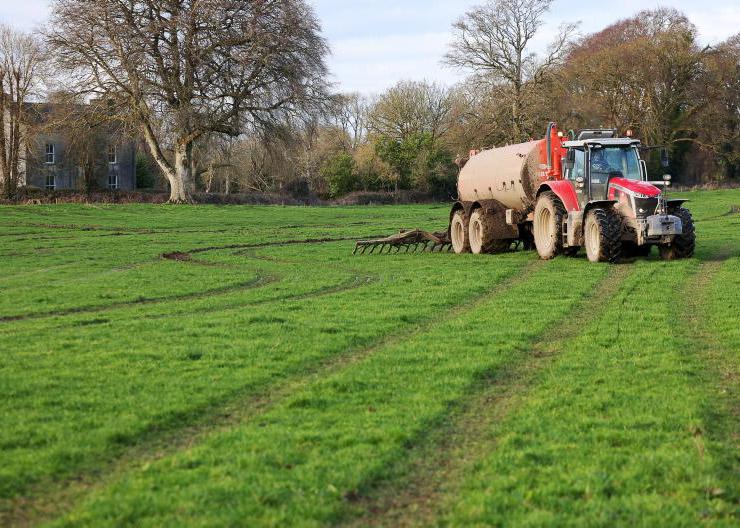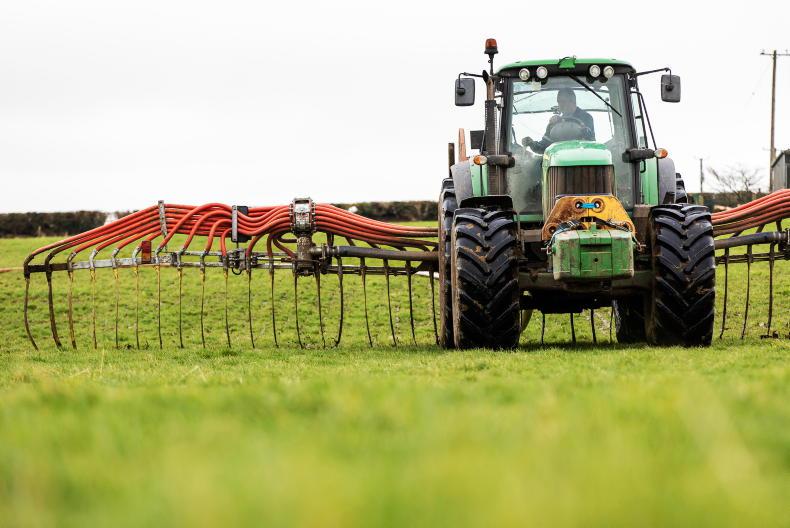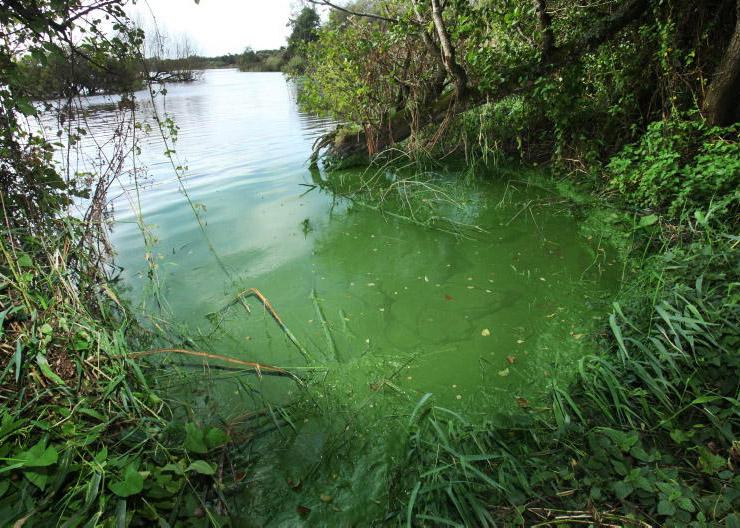Pollution from treated and untreated sewage has a greater threat to water quality and river biodiversity than farming, according to research conducted by the University of Oxford.
Such sewage causes more water quality damage than run-off from farms, the scientists found.
“There is ongoing debate about the cause of the poor ecological state of many rivers in the UK because it is difficult to disentangle different pollution sources.
"Here, we show that even treated sewage appears to have a stronger influence on river communities than pollution from the surrounding land,” said Dr Michelle Jackson of the University of Oxford’s Department of Biology.

As part of the study, the Oxford researchers investigated the effects of three different pollution sources - treated sewage discharge, agriculture and urban run-off.
The study, published this week, made a case for more regulation of water companies and improvements at their treatment plants to protect rivers.
The peer-reviewed work from Oxford was published in the scientific journals Global Change Biology and Ecological Solutions and Evidence.
Wastewater
Dr Jackson explained how water companies in the UK are allowed to release treated wastewater into rivers and even untreated wastewater during heavy rainfalls (known as storm overflow).
As well as the ecological consequences, this poses serious threats for human wellbeing if the water is then used for drinking, recreational or agricultural purposes, she and her scientist peers found.
As part of the study, the Oxford researchers investigated the effects of three different pollution sources - treated sewage discharge, agriculture and urban run-off - on different aspects of river systems. The group tested four rivers in England, both upstream and downstream of sewage discharge, over three different months.

The Oxford scientists studied the factors affecting water quality. \ David Ruffles
The results demonstrated that treated sewage discharge was the best predictor of high nutrient levels, bottom-dwelling algae and sewage fungus abundance, regardless of the type of land use (agriculture or urban) in the surrounding area.
“This important information should be used to prioritise the management and conservation of our rivers moving forward,” she said.
Agriculture in check
In the study, only one measurement - the abundance of the sensitive insect groups of mayflies, stoneflies and caddisflies - was best predicted by the agricultural land use nearby.

Agricultural run-off into rivers still needs to be kept in check, said the Oxford team. \ Claire Nash
Dr Jackson suggested that, therefore, water quality and river biodiversity is generally more threatened by treated sewage discharge than pollution from the surrounding catchment, but that, still, agricultural pollution also needs to be kept in check.
The full University of Oxford study is available here.
Read more
Return to 250kg N/ha could be sought for 2026 if water quality improves
Explainer: what is the nitrates derogation?
Watch: Minister admits year-on-year water comparison not correct measure
Nitrates derogation cut from 250kg N/ha to 220kg confirmed
Pollution from treated and untreated sewage has a greater threat to water quality and river biodiversity than farming, according to research conducted by the University of Oxford.
Such sewage causes more water quality damage than run-off from farms, the scientists found.
“There is ongoing debate about the cause of the poor ecological state of many rivers in the UK because it is difficult to disentangle different pollution sources.
"Here, we show that even treated sewage appears to have a stronger influence on river communities than pollution from the surrounding land,” said Dr Michelle Jackson of the University of Oxford’s Department of Biology.

As part of the study, the Oxford researchers investigated the effects of three different pollution sources - treated sewage discharge, agriculture and urban run-off.
The study, published this week, made a case for more regulation of water companies and improvements at their treatment plants to protect rivers.
The peer-reviewed work from Oxford was published in the scientific journals Global Change Biology and Ecological Solutions and Evidence.
Wastewater
Dr Jackson explained how water companies in the UK are allowed to release treated wastewater into rivers and even untreated wastewater during heavy rainfalls (known as storm overflow).
As well as the ecological consequences, this poses serious threats for human wellbeing if the water is then used for drinking, recreational or agricultural purposes, she and her scientist peers found.
As part of the study, the Oxford researchers investigated the effects of three different pollution sources - treated sewage discharge, agriculture and urban run-off - on different aspects of river systems. The group tested four rivers in England, both upstream and downstream of sewage discharge, over three different months.

The Oxford scientists studied the factors affecting water quality. \ David Ruffles
The results demonstrated that treated sewage discharge was the best predictor of high nutrient levels, bottom-dwelling algae and sewage fungus abundance, regardless of the type of land use (agriculture or urban) in the surrounding area.
“This important information should be used to prioritise the management and conservation of our rivers moving forward,” she said.
Agriculture in check
In the study, only one measurement - the abundance of the sensitive insect groups of mayflies, stoneflies and caddisflies - was best predicted by the agricultural land use nearby.

Agricultural run-off into rivers still needs to be kept in check, said the Oxford team. \ Claire Nash
Dr Jackson suggested that, therefore, water quality and river biodiversity is generally more threatened by treated sewage discharge than pollution from the surrounding catchment, but that, still, agricultural pollution also needs to be kept in check.
The full University of Oxford study is available here.
Read more
Return to 250kg N/ha could be sought for 2026 if water quality improves
Explainer: what is the nitrates derogation?
Watch: Minister admits year-on-year water comparison not correct measure
Nitrates derogation cut from 250kg N/ha to 220kg confirmed













SHARING OPTIONS